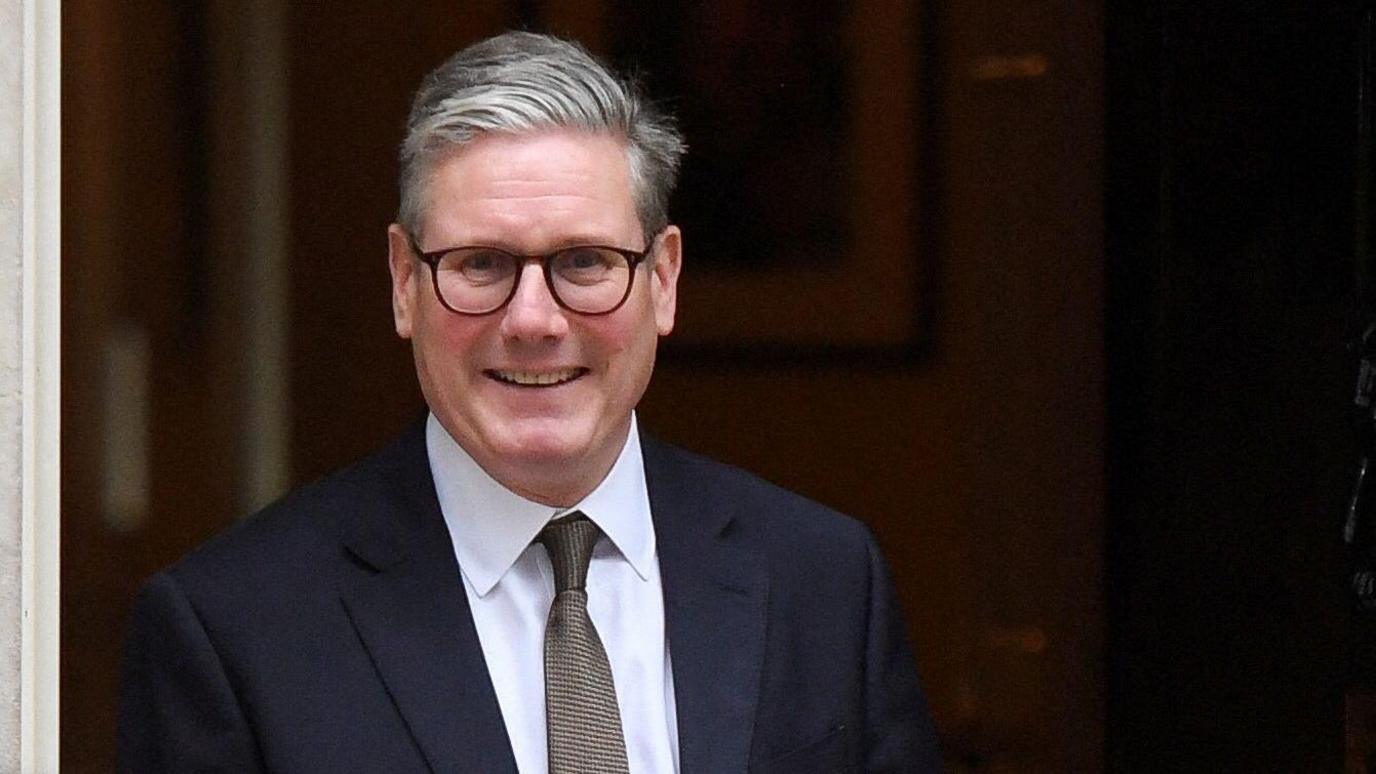No announcement on GB Energy HQ in King's Speech
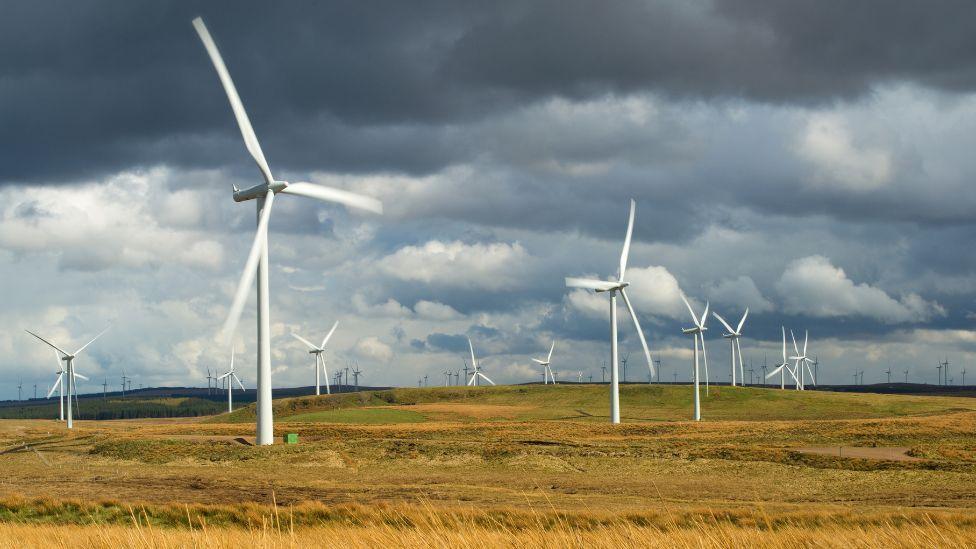
The Labour government says GB energy will help accelerate the UK's transition away from fossil fuels
- Published
The UK government has confirmed its plan to set up headquarters for a new energy company in Scotland - but it is yet to decide on a location.
It was announced in the King's Speech that the Labour administration would create GB Energy to “own, manage and operate clean power projects” across the UK.
King Charles, announcing Prime Minister Sir Keir Starmer's policy agenda, said the firm would be based in Scotland, which the government described as "a global leader in renewable energy".
Chancellor of the Duchy of Lancaster Pat McFadden said further details about GB Energy would be confirmed in due course.
He said that while the government wanted to move quickly, it was yet to make a decision on the headquarters.
Prime Minister Sir Keir Starmer has pledged that the firm would drive the transition to clean energy bring a "huge number" of skilled jobs to Scotland.
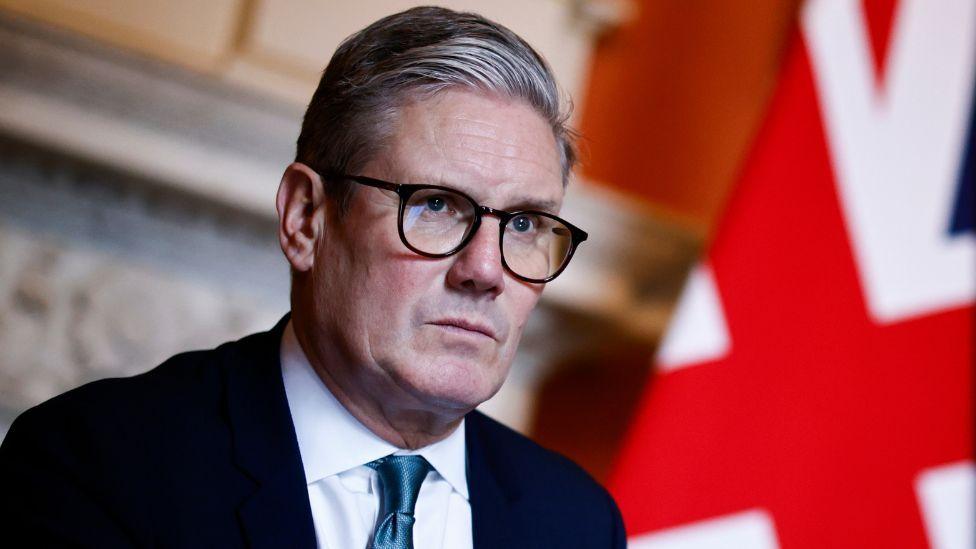
Sir Keir Starmer's policy priorities have been set out in the King's Speech
In documents released alongside the King’s Speech, the government said GB Energy would be backed by £8.3bn of public money over the parliament, with significant private sector investment required to fund a decarbonised power system.
It said the firm would “facilitate, encourage and participate in the production, distribution, storage and supply of clean energy”.
GB Energy will not supply power to homes, but it is designed to help fund existing and new clean technologies and work with local communities to develop small and medium-sized renewable projects.
The King said the legislation would “help the country achieve energy independence and unlock investment in energy infrastructure”.
It was also confirmed Sir Keir’s intention to set up a Council of the Nations and Regions to “renew opportunities” for collaboration between the prime minister, heads of devolved governments and mayors.
Other announcements in the King's Speech that could impact Scotland included workers rights reforms, border security changes, a gradual ban on smoking, limits on vape sales and advertising, support for sustainable aviation fuel production and an end to VAT exemptions for private schools.
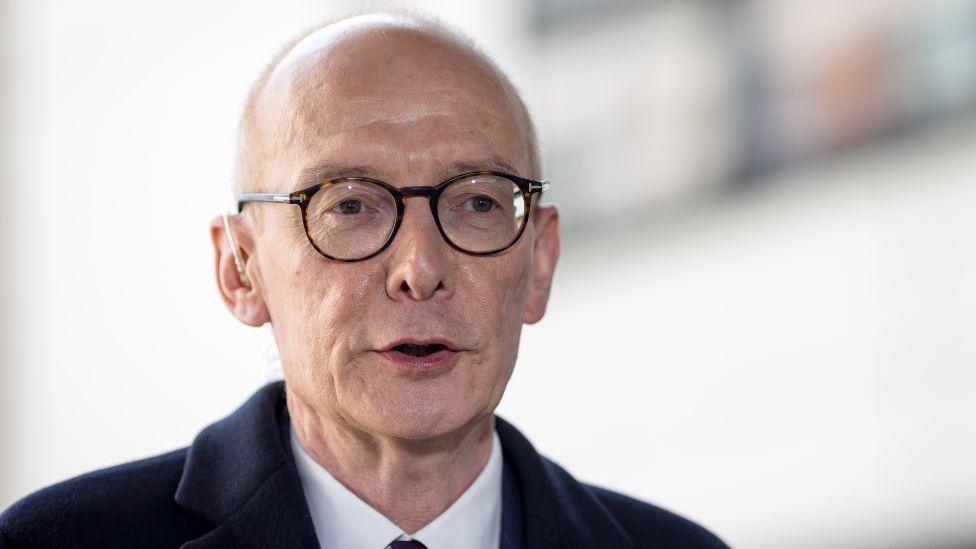
Chancellor of the Duchy of Lancaster Pat McFadden says the government is yet to make a decision on the GB Energy headquarters
Mr McFadden, the MP for Wolverhampton South East who formerly worked for ex-prime minister Tony Blair, told BBC Radio’s Good Morning Scotland that GB Energy was a "huge opportunity".
"I think it'll be great to have the headquarters of that in Scotland, exactly where, we'll announce in due course," he said.
In 2022, Labour said GB Energy would be a "publicly-owned clean energy generation company", which would operate like Sweden's Vattenfall or Denmark's Orsted.
But in subsequent interviews, Sir Keir it would actually be "an investment vehicle" rather than an energy production firm.
Unions have called for more clarity about the plans.
Mr McFadden, who was Labour's national campaign coordinator during the election, was also asked about his party's policy on the North Sea oil and gas industry.
Labour has said previously it would not issue new oil and gas licences, and would extend the windfall tax on energy companies, which OEUK says could threaten some jobs.
But the party has pledged not to overturn existing licences and said that oil and gas would still be part of the energy mix for decades to come.
The policy was not mentioned in the King's Speech.
"We'll be drilling for oil and gas in the North Sea for some time," McFadden said.
"There's an established industry there. There are licenses that have already been granted."
He added: "Again, that's something that we said before the election, and so what you'd expect our actions to be after the election should be consistent with that."
After the King's Speech, Deputy First Minister Kate Forbes said the Scottish government was willing to work “constructively” with the Labour government, but called for further details on GB Energy.
She welcomed proposals to strengthen workers rights and to take action on smoking and vaping, backing a “four-nations” approach on the issue.
The SNP minister also expressed disappointment that the UK government had not pledged to scrap the two-child benefit cap, but said her government would continue to “make the case in order to reduce the harmful levels of child poverty that we see”.
The cap, introduced as part of austerity measures under the Conservative government in 2017, prevents parents from claiming universal credit or child tax credit for a third child, with a few exemptions.

It may be a speech delivered by the King - amid plenty of regal pomp and ceremony - but today's set-piece provides Sir Keir Starmer with an opportunity to demonstrate that he intends to move quickly to deliver on his election promises.
And when it comes to Scotland, it's clear the prime minister wants to project an image of a UK government firmly intent on improving cross-border relations, and governing for the whole country.
Plans to establish GB Energy and a bill to support sustainable aviation fuel production could have a big economic impact north of the border.
The PM has also come up with a forum in which to meet with the devolved governments - a Council of the Nations and Regions. There's talk of "strengthening" and "collaborating", but for now not much more detail on how it'll work in practice.
Respect for the devolution settlement has been welcomed by the Scottish government, but SNP ministers and the party's MPs have been clear they're ready to hold the PM's feet to the fire on issues like workers' rights and child poverty.

SNP Westminster leader Stephen Flynn has said his party would table an amendment to the King's Speech to end the cap.
He said it was “extraordinary” Mr McFadden refused to accept the measure caused harm.
After the King's Speech, Downing Street announced it was setting up a child poverty taskforce – run jointly by the work and pensions department and the education department – as part of its strategy to tackle child poverty.
In a Commons debate, Mr Flynn said the taskforce would “ultimately lead to the same conclusion” his party was proposing, abolishing the cap.
Sir Keir said the point of the taskforce was to produce a strategy to drive down levels of child poverty.
The Child Poverty Action Group in Scotland said that abolishing the cap, which it estimated would cost £1.3bn a year, would lift 250,000 children in the UK out of poverty, including up to 15,000 in Scotland.
Asked repeatedly if he agreed that the cap caused harm, Mr McFadden said it was "open to debate".
Sir Keir has said a Labour government would not change the policy, insisting he would not commit extra money to benefits without first growing the economy.
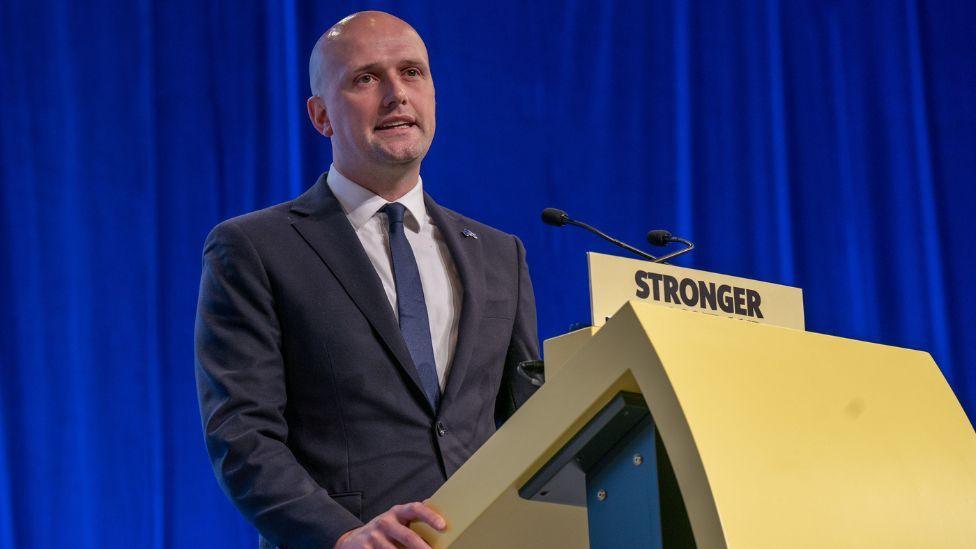
SNP Westminster leader Stephen Flynn has called on Labour to axe the two-child cap
Scottish Labour leader Anas Sarwar said he would press the prime minister to scrap the policy when Labour won power.
Mr McFadden said that while he understood calls for the policy to be ditched, the King’s Speech was about "the change that we talked about in our manifesto", and a change to the cap "wasn't in our manifesto".
Mr Flynn had called for Labour “to do the right thing”, arguing the UK government had the fiscal levers to raise tens of billions of pounds, more than was needed to pay for the costs of scrapping the cap.
Asked why the SNP government did not mitigate the effects of the policy north of the border, he said it had already introduced the Scottish Child Payment but that Holyrood’s finances were “hugely constrained” by Westminster.
“If we were to choose to mitigate one of their policies again it would come at the expense of Scotland's health service, Scotland's education service, Scotland's police force," he told Good Morning Scotland.
Andrew Bowie, Conservative MP for West Aberdeenshire and Kincardine and shadow minister for veterans affairs, said the two-child cap delivered “fairness” and urged Labour not to scrap it.
He also said Labour had failed during the election campaign to explain exactly what GB Energy would do.
Mr Bowie added: “I’m very much hoping it’s not just a glorified call centre.”
- Published11 July 2024
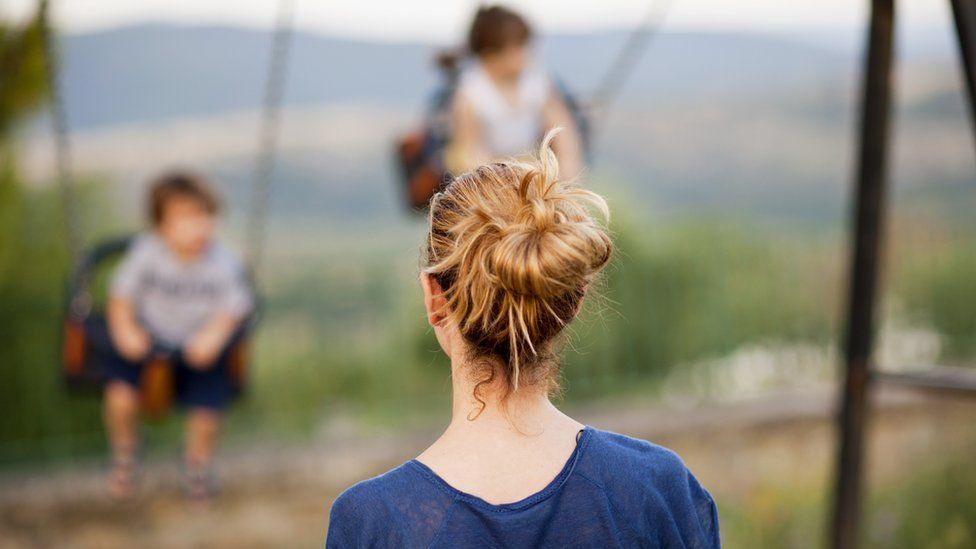
- Published23 June 2024
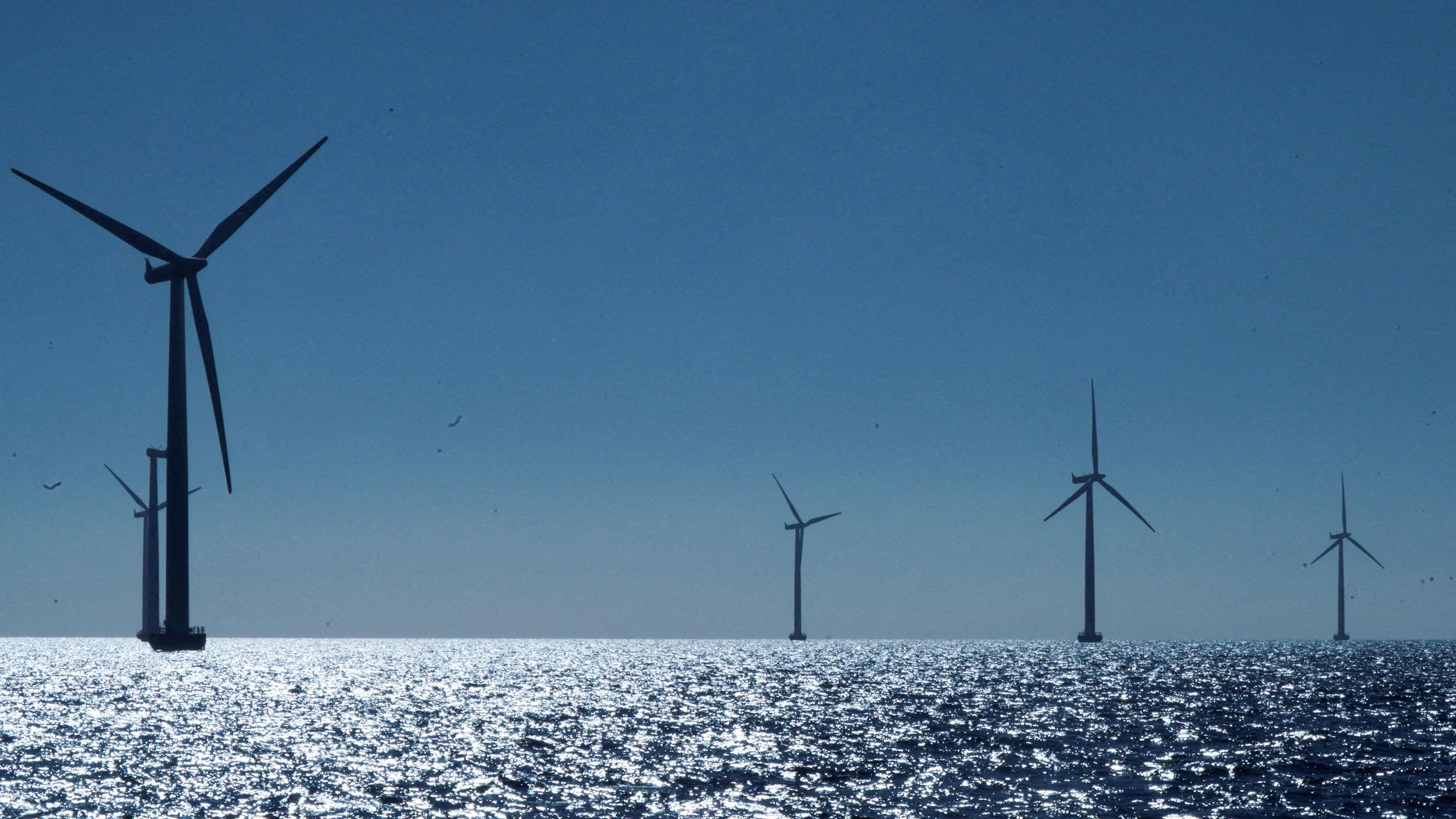
- Published17 July 2024
